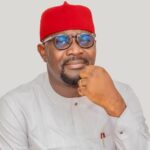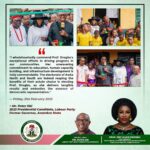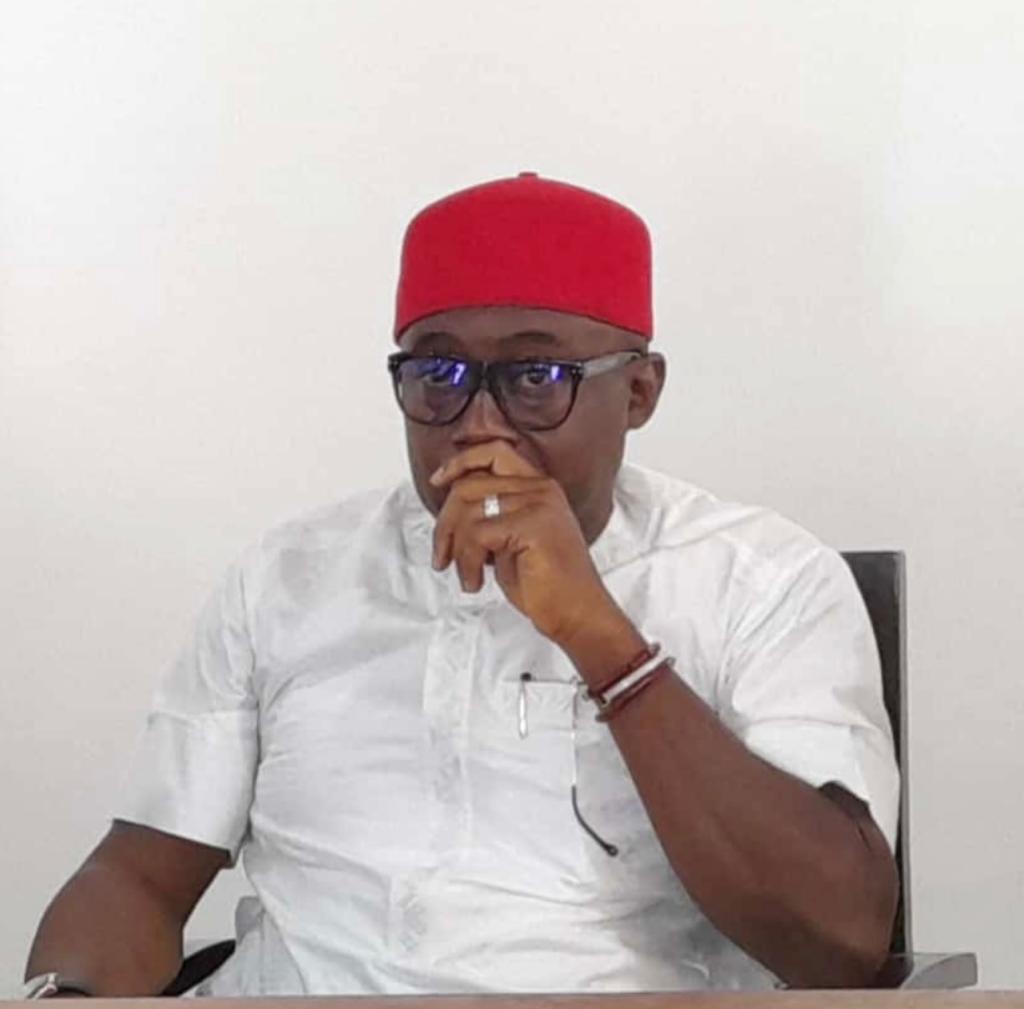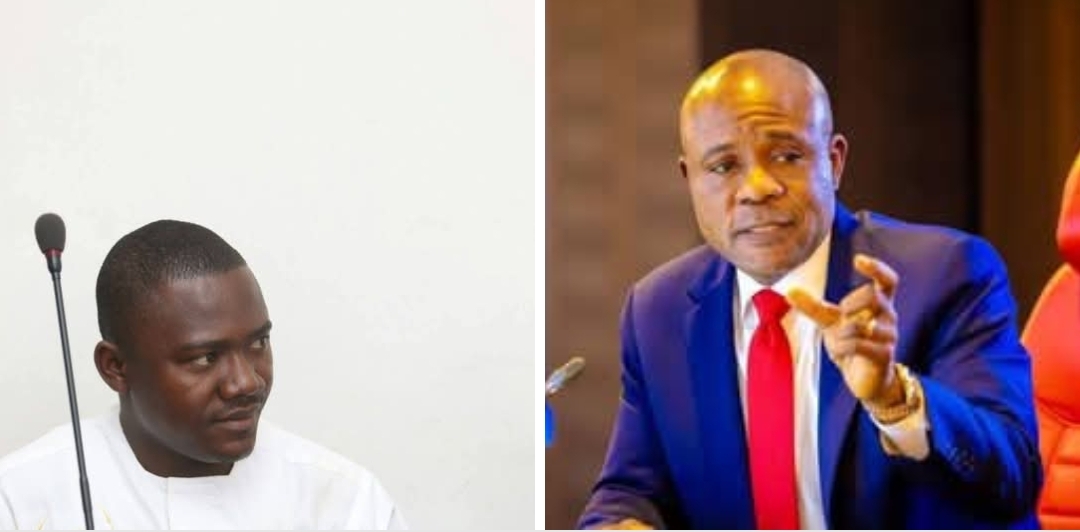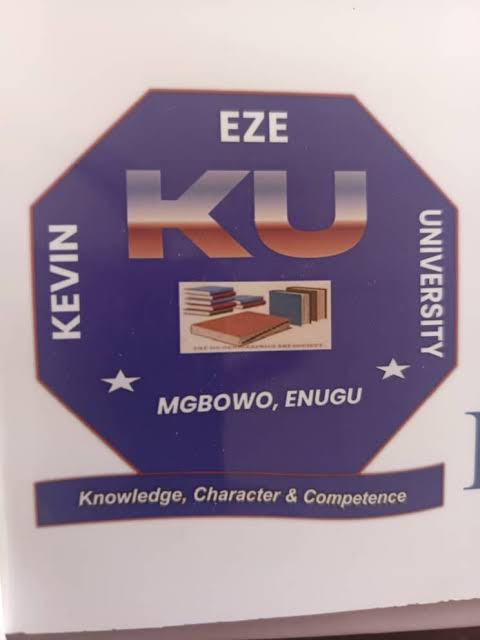The Leadership Scorecard’s Perspectives with Uzu Okagbue – an explosive media expository, depicting the Igbo political situation in Nigeria and the way forward out of the doldrums.
If there is one Igbo leader who seems to be reading the hieroglyphics of the politics of times right in Nigeria, then that Igbo man is Uzu Okagbue.



Uzuegbuna Okagbue, more popularly called “Uzu”, was born on the 1st of October 1977, to the family of Chief Chike Okagbue, a renowned businessman who owned chains of businesses with stakes in petroleum products, real estate, among others, around the Southeast and beyond.
Uzuegbuna Okagbue was a banker for almost a decade during which time he won at least three merit awards for outstanding performance, before joining former Anambra State Governor, His Excellency, Chief Willie Obiano, as Chief of Protocol and Deputy Chief of Staff for a combined period of eight years.
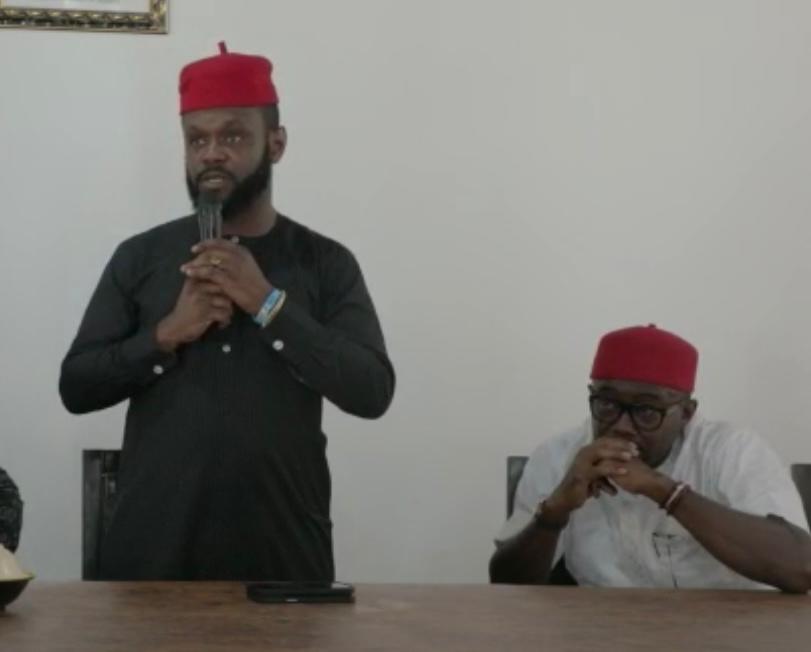
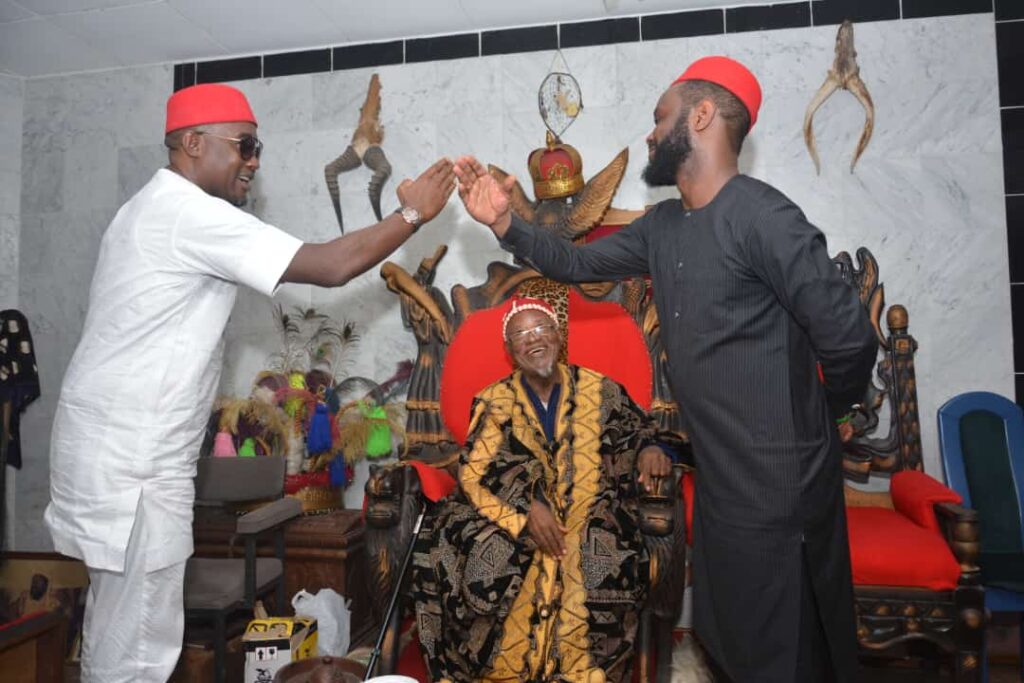

Uzu Okagbue, who was trained as a political scientist, quite convincingly appears to have a different approach to politics. He understands the art of the deal. In consequence, Uzu Okagbue has continually taken ‘the road less traveled’ by conventional politics. His reputation as an astute personae and his unrepentant show of selflessness in public service was hard fought and gained. Uzu remains the pricest material in Obiano’s government, and he proved himself from the beginning to the end. To his credit, no form of merchandising or commercial interest is traceable to Uzu directly or indirectly in the government, despite the enormity of influence he weilded within that government circle, at the highest levels. This only speaks to the caliber of a man Uzu Okagbue is. He just wanted the politics and policies of the government he served, to be right, and for the people to get the best possible quality service. This is not far from what he did in the banking industry with ⁷ competition, yet he stood out and was repeatedly recognised and honored.

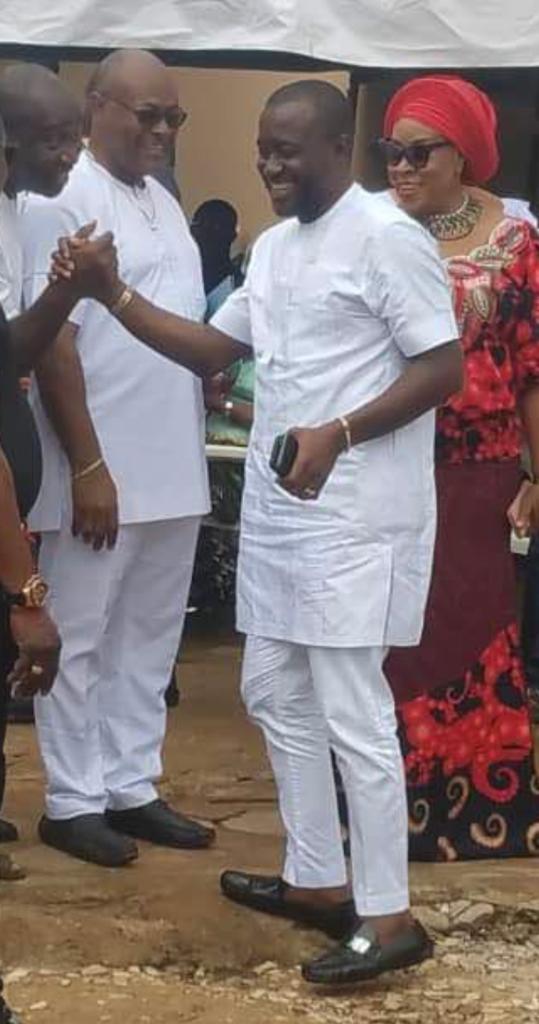
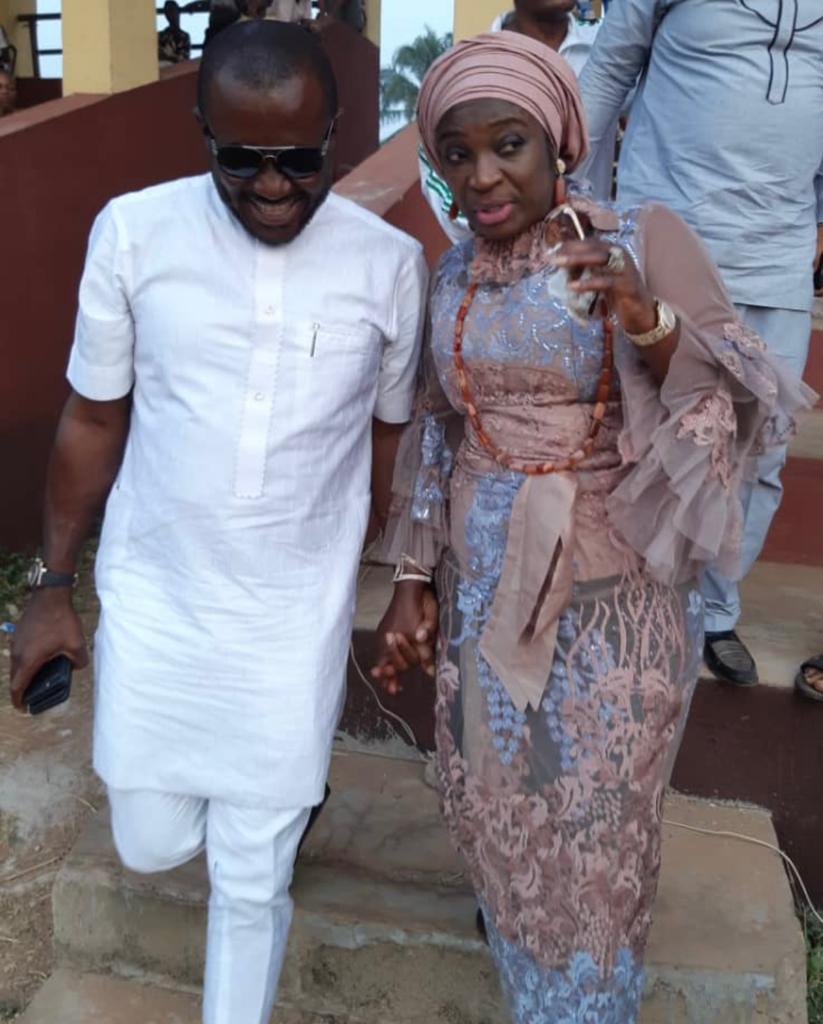

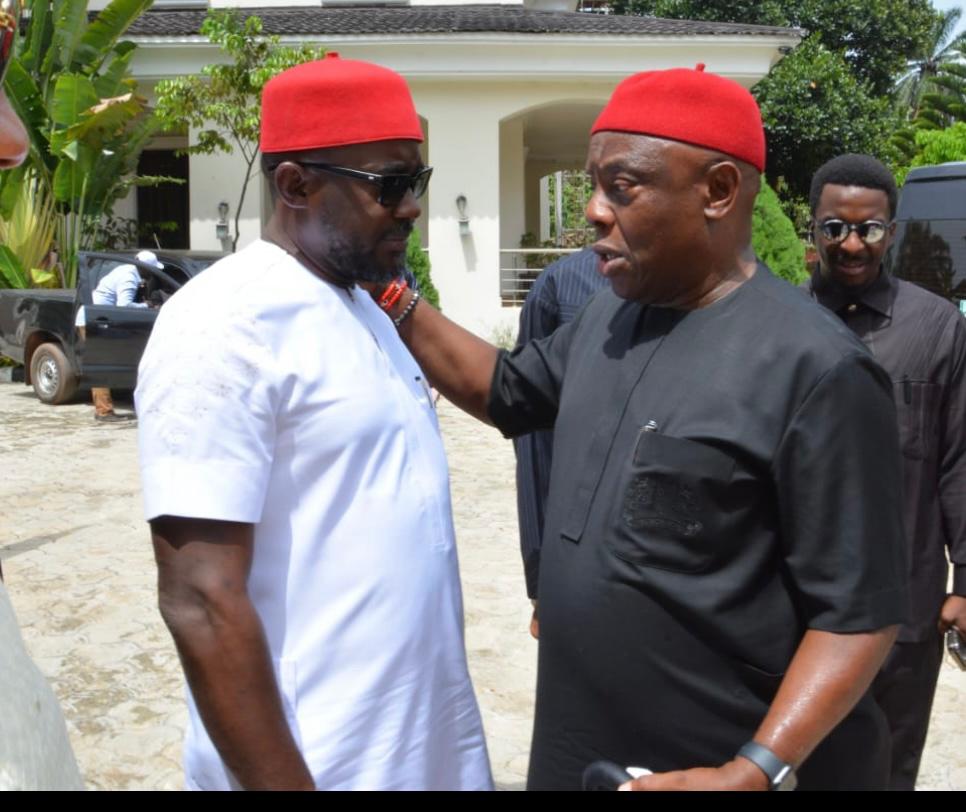
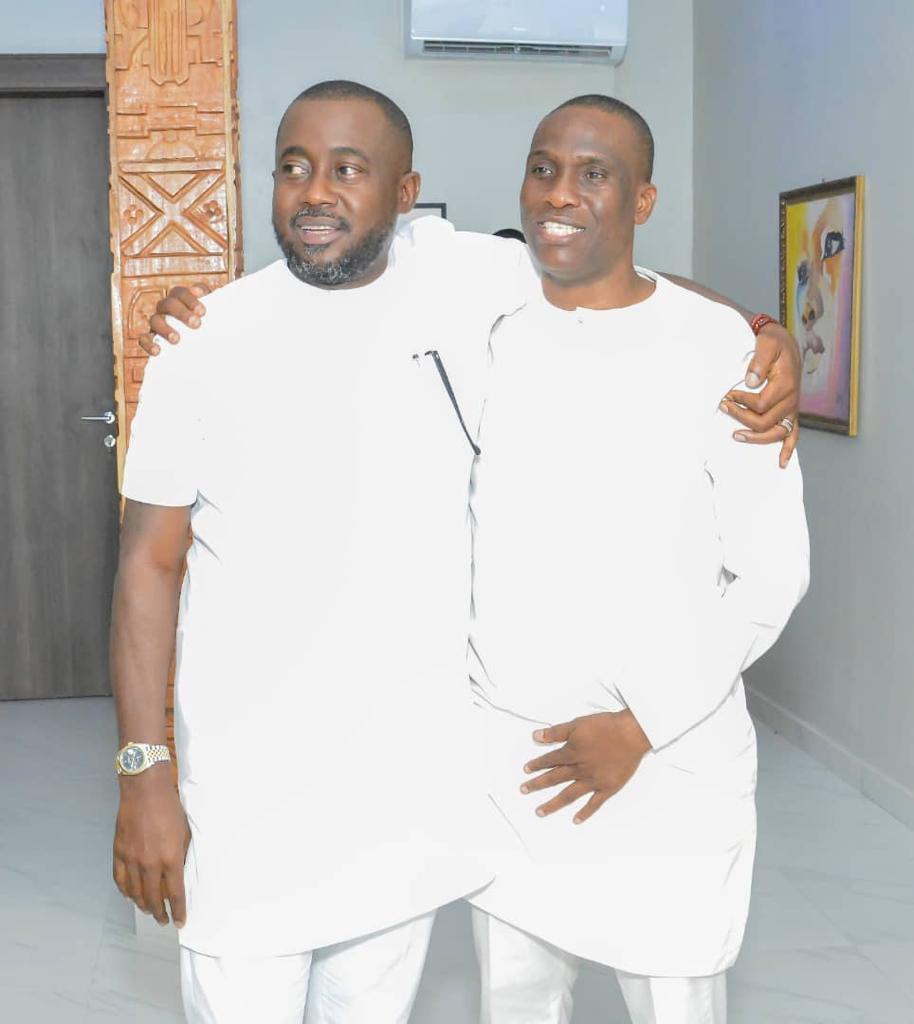
Thus, from his background, it is not exactly surprising when he dared the impossible during the last presidential election, and went straight to propagating Asiwaju’s candidature in the 2023 presidential election, in Igboland and didn’t pay any attention to such “odd” position in the zone at the time, or its possible consequences. Uzu Okagbue is definitely a man of immense quality and depths of conviction. His foresightedness and focused gaze put him forward as a politician of such quality that would take the southeast out of political hibernation. When we put these into right perspectives, with a strong character, firm and young supporter like Uzu Okagbue, what gains would President Tinubu and APC take from Okagbue’s support, born purely out of his conviction that Asiwaju was the right person for the job, and on the other hand, that Ndi Igbo should return to mainstream Nigerian politics?
In this interview on Leadership Scorecard’s Perspectives, with Uzu Okagbue, former Chief of Protocol and Deputy Chief of Staff to the former Governor of Anambra State, Chief Willie Obiano, Okagbue calls on Ndigbo across the nation to move on after Peter Obi’s sterling showing at the polls and cast their weight behind President Bola Tinubu’s administration in their best interests.
_Excerpt_ :
_The increase in the pump price of petrol/PMS within the first week of President Tinubu’s assumption to power has stirred significant public reaction. What are your thoughts on that?_
In our last informal conversation, we extensively discussed President Tinubu’s election and the processes that led to his assumption of the presidency. Most people had issues with his remark during his swearing-in (when he said “subsidy is gone”) and when he assumed office, he went on to notify Nigerians that even the subsidy no longer exists in the budget. In effect, the markets are reacting to that, and we have witnessed hardship. I consider myself an average Nigerian who can pay his bills, but I have also continued to witness this hardship. So, I can imagine what people who are lower on the ladder go through.
Over the years, subsidy has become a scam that must come to an end. The question now is, ‘what can we do to have a more thriving economy?’ As far as I’m concerned, the challenge with the Nigerian economy is not with the cost of living, but its dependence on the dollar (which we do not earn, because we are primarily a consumption-based economy).
If the government of Bola Ahmed Tinubu can work on the production aspect of this economy – which it has begun to do – it will get better. Once we can improve our exports and reduce our dependence on imports, the naria will be relatively stable, and the economy will thrive. One of the ways to achieve this is to first work on the power sector. You can not produce effectively without electricity. So, if our power generation gets better, we will witness a thriving production economy. If we can cut down on our dependence on some of the things that can be produced in this country – in agriculture, for instance, if we can improve our agricultural production and begin to be self-sufficient and be able to export after sustaining ourselves – we will also witness a downward trend in the naira-to-dollar exchange rate. I will leave the matters of the economy to the people whom he handed it over to. I would only ask that Nigerians exercise a little more patience. Perhaps, in another six months to one year, we will begin to see things happen differently.
_As an ally of President Tinubu and a believer in the inherent benefits of his administration to the southeastern region, what policies do you think the government is putting in place to take care of the private sector where the Igbos are key-players?_
The people of southeastern Nigeria are mostly traders. There’s a great difference between trading, industrialisation, and production. To a great extent, some of the decisions that have been taken now would adversely affect southeastern Nigeria, but if they embrace production and trade including export of locally produced goods as against premium on importation which is largely what you witness in the Nigerian market, at the long run they would benefit from the policies of this government.
First, Nigeria needs to move from consumption to production. Traders might find it difficult at the beginning, but, in the long run, they would benefit from production because we can produce what we need here, largely. If we do that, like any other economy in the world, we will have a thriving economy. Southeastern Nigeria has industrialists. Some of our industries have packed up over the years as a result of poor economic policies. Now, the current government is working to revive the production aspect of the economy. If it is revived, you will discover that most of our traders would go into production, too. I think the southeast is the commercial base of Nigeria and, with the high-level of production in Aba and Nnewi, if the right measures are put in place, I think the southeast would be best for it. The reason I think the southeast should embrace this government is that I know that this government has a business outlook, which is what my people are known for. My people are capable of sustaining themselves, regardless of the level of effort that comes from the government. All they need is the right policies to grow their businesses.
With the cabinet recently inaugurated, in a couple of months, we would see policies that would tilt towards improving the production economy, which is the market that southeastern Nigeria plays very well in.
_Currently, the Nigerian political landscape is highly characterised by ethnicity and religious tension as a result of the aftermath of the general election. What is the administration of President Tinubu doing to regain the trust of the people?_
First, your question can’t happen now because there are still, whether rightly or wrongly, expectations coming from the various tribunals and court cases. Until these cases are fully and completely dispensed with and the people are satisfied that they’ve sought redress and decisions have been made by the court, it would be most difficult to convince one who is optimistic that he or she has been shortchanged to embrace the other person. So, until the opposition is satisfied with the processes that are in court, your expectations might not be happening soon. But I believe that when the cases in court are dispensed with, Nigerians need to reawaken to a new political order; an order that is built on Nigeria first. The regions and the federating units that make up Nigeria are not more important than Nigeria itself. We must move away from regional leaning in politics and other matters that concern Nigeria. We must begin to see ourselves as Nigerians rather than people from a particular region or tribe. Until this happens, the unity that is much talked about will remain a mirage.
Regardless of who leads Nigeria, what is important is the competence of the leader to take the country to where all of us expect it to be. The reason why I supported Asiwaju, who eventually ran on a Muslim-Muslim ticket, was because my faith does not determine how much I pay for petroleum products when I drive into a service station. There is no service station you go to that is meant for Christians or Muslims alone. We all go to the same service station and market. If we understand that regardless of what faith we propagate, the challenges of Nigeria affect all of us, then we will begin to think towards making Nigeria work for everyone, regardless of what religion we profess.
_Currently, Nigeria is faced with security challenges. What hope do we have in the Asiwaju administration to address these security threats?_
I would rather not talk about the northeast; I will lay more emphasis on the southeast because that is where I come from. I understand the challenge of the southeast better. What you witness in the southeast today is purely criminal. It has nothing to do with any agitation. It has a lot to do with the challenge of bad leadership over time in Nigeria, leading to joblessness and, resultantly, alternative ways to survive. Of course, the agitation in the southeast by the Indigenous People of Biafra (IPOB) is not responsible for the criminality in the region. It is largely as a result of what the greater number of Igbos consider as marginalisation in Nigeria. They have continued to pursue ways to correct this perceived injustice. Some of those who understand the politics therein have called on the Igbos to understand that the only way to correct the perceived injustice is to continue to engage the other parts of the country. You can not do it in isolation. Anybody who, in the 21st century, still talks about pursuing the state of Biafra is actually indulging in an exercise of futility because if you feel the solution to marginalisation of Igbos is seceding, [you can be sure that] one day, the people of your place will also consider themselves marginalised within the Biafra nation and begin to pursue their own nation. That’s not how to go about this.
Today, Nigerians troop to Canada to get residence and work there for reasons of the liberal nature of the Canadians. They are willing to accommodate tribes from all over the world to build their country. So, why should we, in our multi-ethnic region, begin to preach about a nation of perhaps only Igbos when countries are opening up their borders for diverse ethnic groups to come in and contribute to the development of their countries? I wouldn’t want to be a part of a nation that is predominantly Igbo. What is the essence of going to school if not to go out and explore and learn for the purposes of growth? The insecurity in the southeast is largely criminal. The people who perpetrate these [crimes] are criminal elements.
I can tell you vividly what I used to do at 18, 19, and 20. I can tell you what I was involved with. Today, what are people within that age bracket involved in? Some of these young men and women now command sufficient funds to drive luxurious cars when I hadn’t even learned how to drive at that age. This is because of too much emphasis on money. People who are 19 years old now buy their own houses and cars. At 19, when I was growing up, you were not done with school. I think it is still the same process today because there is an acceptable age for people to get into secondary schools and universities. But you find kids who are 20 today, driving vehicles that cost N30m-N50m. I see that in our place, and I see such young lads celebrated. That is an overemphasis on money and our religious institutions, both the traditional and the orthodox, are also not doing a good job in doing what they ought to do.
_What made you stand against all odds to say that Bola Tinubu is the right person to lead the country?_
It was very easy for me. It wasn’t a difficult decision to take. First, there were four main candidates in the election; Rabiu Kwakwaso, Alhaji Atiku Abubakar, Peter Obi, and Asiwaju Ahmed Tinubu Of course, [it is] implied but not written in Nigeria that, after every 8 years in the north, power will naturally go to the south. It was easy for me to narrow it down to the two candidates from the south; Peter Obi and Bola Tinubu. Again, [that choice] was pretty much easier because they have both been governors. For me, it is like a comparison between apples and tomatoes. They are not the same thing. They have their uses and purposes. Tomatoes are good for a good meal. Apples are high in vitamins. You can’t compare the two in leadership. Bringing the two of them into leadership analysis was purely a mismatch. Peter Obi is a great businessman. He has done well for himself. Looking at his style of leadership in Anambra State, you would agree with me that he did well in line with his competence, which is trading. Asiwaju did well for Lagos in line with his competence, which is political leadership. If you put the two states side by side, you will agree with me that Bola Tinubu performed better and this was also the position of most people in Nigeria, except that some people felt Tinubu had become too old and might not exhibit the capacity that he did during his days as governor.
During his tenure as governor of Lagos State, Tinubu actively diversified his cabinet. In fact, he is one of the few governors who appointed non-natives into state cabinets, even when it was considered unconventional.
Tinubu demonstrated his commitment to inclusivity and his emphasis on competence during his governorship in Lagos. He has consistently maintained this approach, establishing himself as a truly pan-Nigerian figure. His political adversaries can not accuse him of pursuing sectarian or ethnic ambitions.
Tinubu performed better as governor compared to Peter Obi. Looking at their age, for me, my emphasis on any human being is what you have upstairs and not the age. I had the opportunity to spend time with Bola Ahmed Tinubu; we talked, and I saw a man who is still at home with all his cognitive abilities.
Regardless of the opinions of Nigerians who neither met with him nor knew him well enough, I was convinced that nothing in his health would impede his leading this country well. I firmly supported him and since his election as President of Nigeria, I think Nigerians have come to agree with me that there is nothing in his health, so far, that has stopped him from leading the country. Some of those jokes that were cracked about his health no longer exist. They were all propaganda. Bola Ahmed Tinubu is still a sound man. He is still very much together and capable of leading Nigeria towards the promised land for someone else to continue because he is not going to solve all the problems of Nigeria in four or eight years. He is going to set structures and make policies that he did in Lagos that other people are going to leverage to keep moving Nigeria to our dream.
_Women are still underrepresented in politics. How do you think women can be encouraged to join politics?_
We are not real in Nigeria. We use words for situations in which we do not want to tell the truth. The issue with women in politics stems from what we call the ‘culture of an African man’. The culture of an African man is not to allow the wife, daughter, or sister to indulge in certain aspects of life that tend to expose or compromise [the dignity of] women. That is the problem we have. So the few women you find in politics are the ones that are daring or the ones with relatives or husbands who understand that those days are gone when women should be kept out of certain aspects of life.
If you want to see an improvement of women in politics, we need to begin to re-orientate the general public to understand and appreciate that women can actually play certain roles in life and that certain roles are not exclusive to men. Even in our homes, there are responsibilities that women do not handle, and this is what translates to the larger society.
In most homes today, women don’t take the vehicles to the mechanic. When the car is bad, the woman will naturally park the car and report back to the husband to handle it. It is not because she can’t go to the mechanic; it is implied that certain responsibilities are for men. You only find a few women daring to participate in politics. You only find a few women allowed by their husbands. There are people in this country today who, if you appoint their wives as ministers, will tell you to keep it, that she will not take it. Six in ten men will tell you that their wife will not take that job. That is our orientation. It also has to do with some of the things women go to school to study. You won’t find a lot of women in civil or electrical engineering courses, for example. So, until we begin to change our perceptions about women on the kinds of things they can do, we probably will always have that [perception of] limitation of women in politics.
_There is a general reflection after the general election that the southeast did not vote for Tinubu. However, there were pockets of persons from the region who threw their weight behind Tinubu. In spite of this, there has been a gross underrepresentation of the region in the current administration. Would this encourage them to support him when next he is on the ballot?_
Nigeria is mostly defined by practices and culture of our perception of things. I do not agree with anybody who says that the southeast is under-represented in this government. If you want to judge that, less than 100 appointments have been made (both the service chiefs, special advisers, senior special assistants, special assistants, cabinet members, ministers, and all). The government is a huge structure with numerous positions. So, having appointed 45 ministers, you are saying the southeast is under-represented. But that doesn’t mean that this government is not going to have southeastern Nigerians well represented in it.
There are still numerous offices. Unfortunately, Nigeria is all about perception. Everybody in Nigeria thinks that the only office that is occupied in Nigeria is the office of the president, vice-president, and minister. That’s it. Of course, these people are a very minute number required for Nigeria to function. Until those appointments are made and we see the end of it, you can not say that southeastern Nigeria is under-represented. There are several agencies of government responsible for the day-to-day smooth running of this entity called Nigeria, and in most of these agencies and parastatals, you do not have people occupying those positions yet. It will be pre-emptive for any person to begin to raise dust about the southeast being under-represented. It is not yet time for that conversation.
One would expect that, by now, the southeast has learned from the consequences of political inexperience. However, recent events over the past few months strongly suggest otherwise. It is unwise for any group to publicly declare their opposition to a sitting president. This mirrors the same approach taken against former President Muhammadu Buhari, which resulted in the political isolation of the region.
Hence, it is prudent to chart a new course that encourages a more measured and circumspect approach to past mistakes in political opinion.
While our son remains in legal battles challenging the outcome of the presidential election, it’s politically prudent to advocate for fairness and equity in the Igbo community’s support for Peter Obi, just as others supported our own Peter Obi. What applies to one should apply to all. Engaging in divisive politics will only leave our land barren and desolate.
The southeast should broaden its horizons and consider various possibilities as we await the presidential tribunal’s verdict. Tinubu’s Presidency presents a bold and sophisticated option that the Igbo community should explore. Putting all our eggs in one political basket is unwise and counterproductive.
We must be cautious not to repeat the same mistakes we made during Buhari’s regime. Emotions should not becloud our judgment, and we must not blindly walk into political obscurity. We should not repeat the mistakes of lopsided politics without a clear direction.
Tinubu has a strategic vision, and it is becoming evident that his presidency could greatly benefit the Igbo community.
For Tinubu’s presidency to truly benefit the Igbo community, more Igbo leaders should rally in solidarity with him. There’s no reason why the southeast and the southwest can not collaborate politically. Claims to the contrary are baseless.
All evidence strongly suggests that Tinubu’s presidency will benefit all Nigerians.
_What is your take on the appointments made so far?_
The first thing we need to know is that this government came into office with certain promises. The government promised that Nigerians were going to get a level playing ground. Then, he promised that all Nigerians would be treated the same way and that this country was not going to have sacred cows. If you go through the list of appointments that have been made so far, you will discover that this government is doing justice to all Nigerians. Unfortunately, there are some people who feel that what was promised to Nigerians was going to be full-blown communism, where everybody is equal. But that is not what democracy is about. It is not a one-size-fits-all thing; It is about giving everybody an opportunity. The leadership of any democracy is responsible for building a nation. It is not responsible for creating wealth for the people. If we can understand this, then we will know that these people who have been appointed to the various offices are not going there to make money for you. They are not going to the office to share money. They are going there to create a platform for you to access what is available in that sector.
It is for the people to also key into these platforms and exploit the opportunities in the sector. So far, I have not seen any section of Nigeria complaining that they are left out. Every section of Nigeria has a good representation in this administration. I remember a few years ago, it was complained that only people from a particular region were appointed by the president. As we speak today, the northwest, north-central, south-south, southeast, and northeast are not complaining. This government is fair. This government has given every section of Nigeria a fair representation. If you can’t find your own person in any of the appointments so far, then it means that you are not looking well or maybe your zone has not taken a decision that they are going to key into the platform that will enable them to access the opportunities available to them.
The government has, so far, done very well. Nigeria must move from these parochial perceptions to national consciousness. Nigeria has a lot to achieve if we do not make certain parts of Nigeria look like pariahs in their own country. Every part of Nigeria has a good representation in this government.
_Finally, what should Nigerians expect from the government of President Tinubu in the next four years?_
I expect that in the next four years, President Tinubu’s administration will focus on addressing some of the critical challenges that have bedeviled our nation for a long time. First and foremost, I believe that the administration will prioritise economic reforms aimed at diversifying the economy and reducing our over-reliance on oil. This will involve investing in key sectors such as agriculture, manufacturing, and technology to create jobs and boost economic growth.
Secondly, I expect a strong commitment to addressing the security challenges facing the country. This will require a comprehensive approach that includes not only military action but also efforts to address the root causes of insecurity, such as poverty, unemployment, and social inequality.
Thirdly, I anticipate that the administration will focus on infrastructure development, particularly in the areas of power generation and transportation. Improving our infrastructure will not only enhance the quality of life for Nigerians but also make the country more attractive to investors.
Additionally, I hope to see a continued emphasis on good governance, transparency, and the fight against corruption. These are essential for building trust in government and ensuring that public resources are used for the benefit of all Nigerians.
Finally, I expect President Tinubu’s government to prioritise unity and national cohesion. Nigeria is a diverse country with various ethnic and religious groups, and it is crucial to promote inclusivity and dialogue to bridge divides and foster a sense of belonging among all citizens.
In summary, Nigerians should expect a government that is committed to addressing economic, security, infrastructure, governance, and unity challenges in the next four years. With the right policies and the support of the Nigerian people, I believe President Tinubu’s administration can make significant progress in these areas.





